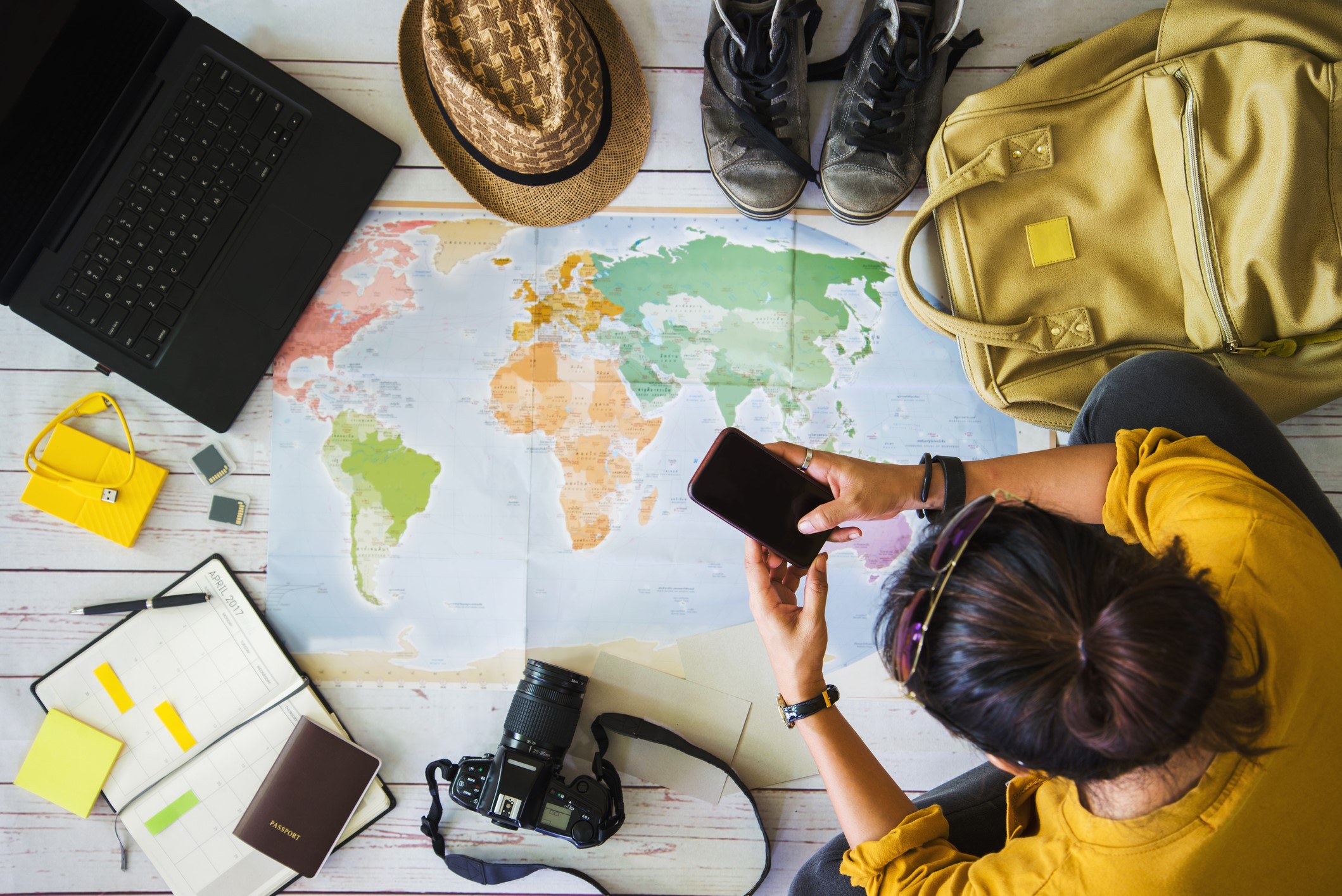1- Passport protocol
You won’t be able to go internationally unless you have your passport with you. So, before you go to the airport, double-check that you have it in your carry-on bag. Make a copy of your passport to keep with you at all times, and keep the original in the hotel safe.
2- Safeguard against accidents
While traveling, many things can go wrong: flight delays and cancellations, delayed or lost luggage, travel accidents, emergency evacuations, and more. When planning an international trip, use a credit card that gives reimbursement for these inconveniences to pay for flights, hotels, and rental cars. Most premium travel rewards credit cards include these benefits, and some have annual fees as low as $100. If something goes wrong on your trip, these advantages might save you thousands of dollars. If you don’t have a credit card that provides this level of security, consider obtaining traveller’s insurance separately.
3- Avoid germs
Throughout your journey, you’ll be touching a variety of surfaces—buttons, touch screens, escalator railings, security bins, armrests, seat belts, and tray tables—that countless others have touched before you between cleanings. Clean germs from your hands as often as possible, and keep a 3-ounce bottle of antibacterial hand sanitizer on hand for when you can’t wash them with soap and water. Also, bring a small packet of antibacterial wipes with you when flying to clean off surfaces that will be in your close area for the duration of your flight, especially the seat-back tray table, which has been shown to retain more germs than the airline restroom.
4- Recharge electronic devices
Ensure your phone, laptop, and other electronics are fully charged achieves two goals. For starters, it ensures that you have adequate electricity to stay occupied or work during your travel. Second, it compels you to know where you keep your batteries and cables ahead of time, saving you from a last-minute scramble with the Uber waiting outside. It’s also a good idea to bring a portable charger in case your battery runs out faster than expected.
5- Carry-on essentials
Pack your medications in your carry-on luggage. Depending on your destination, your medication may not be easily accessible or may cost a substantial sum if your luggage is lost. Bring a change of clothes on board as well, in case your luggage takes an unintentional detour and doesn’t arrive until the next day. The same is true of your passport, cash, devices, and jewelry.
6- Choose your seats wisely
You may believe you’ve read the seating chart correctly, only to discover you’re seated right next to the restroom, have less legroom due to an equipment box, or have unintentionally reserved a seat without an adjustable armrest (therefore reducing seat width). Consult a seat map for each aircraft to discover the best seat for your preferences.
7- Go to an airport lounge
If you have a long stopover or need to have a conference call in quiet, an airport lounge can be a safe sanctuary from the chaos. Take advantage of the airport lounges to make your flying experience less unpleasant. Lounges not only provide a pleasant respite from the noise and bustle of the gates, but they also provide a variety of amenities ranging from dining to shower facilities to specialized workplaces. If you don’t have enough airline status or your credit card doesn’t enable you to fly, many airlines will let you buy a day pass.

